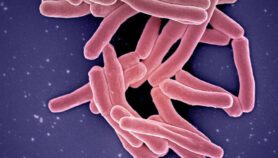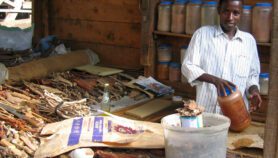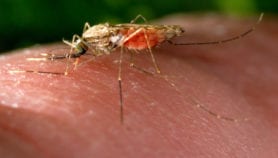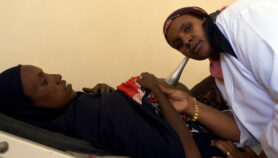Send to a friend
The details you provide on this page will not be used to send unsolicited email, and will not be sold to a 3rd party. See privacy policy.
As three Andean nations forge ahead with free trade agreements with the United States, Lisbeth Fog reports on the implications for healthcare, research and regional stability.
After 21 months of tough negotiations, Colombia announced on 27 February that it had reached a consensus with the United States on the two countries’ planned Free Trade Agreement (FTA).
"The FTA will enable Colombia to open the US market to our products permanently", said president Álvaro Uribe, announcing that negotiations had ended. He said the deal would create jobs and help eradicate poverty because "if we increase exports, there will be more investment, and as a result there will be social improvement".
But the text of the FTA has not been made fully public yet, and not everybody shares Uribe’s optimism. Policymakers, scientists and farmers, in particular, cannot agree about what the FTA means for healthcare, research and national development, and some fear it will damage the country’s prospects for peace.
Regional turmoil
Initially Colombia, Ecuador and Peru had planned to enter into a joint FTA with the United States, but Peru broke away and signed its own agreement in April, and Ecuador is still negotiating.
The issue has sparked a political storm that is making front-page news across the region. Venezuela’s president, Hugo Chavez, has accused Colombia and Peru of behaving like bigamists.
He says that signing an FTA with the United States is incompatible with being a member of the Andean Community of Nations, which promotes economic, political and social cooperation among Bolivia, Colombia, Ecuador, Peru and Venezuela.
Venezuela has decided to withdraw from the community. Meanwhile, Bolivia’s president Evo Morales has backed Chavez’s stance and called his Peruvian counterpart Alejandro Toledo a "traitor to indigenous people" for signing the FTA.
Patents and pills
In September 2005, two Colombian negotiators resigned, concerned that their government was close to agreeing with the US position on pharmaceutical patents. They felt this would prevent Colombia from making cheap versions of drugs patented in the United States, and that the cost of imported drugs would be too high for most Colombians.
Germán Holguín-Zamorano, director of the nongovernmental organisation Misión Salud, says Colombia made several concessions that went beyond World Trade Organization rules — such as allowing patents on minor changes made to existing products.
In a letter to Colombia’s National Academy of Medicine, he said this would have great impacts on the country’s economy and health, increasing the costs of patented medicines and delaying Colombia’s access to generic versions of patented drugs. Holguín said the FTA would serve to boost US-based drug companies’ profits and increase their share of the Colombian market.
"The agreement benefits pharmaceutical companies, not Colombian patients", agrees Francisco Rossi, a drug policy specialist with the United Nations Development Programme, who was an observer at the negotiations.
Maria Claudia García, of Colombia’s Association of Pharmaceutical Research Laboratories (AFIDRO), disputes the claims, saying that the FTA will not restrict access to medicines. García says Colombia will take steps to increase generic drug production by local research companies.
These measures will include making Colombian institutions, such as the patent office and the National Institute of Food and Drug Safety (INVIMA) more efficient.
Health minister Diego Palacio says the government will give INVIMA ten billion pesos (US$4,500,000) over five years "to implement the changes that a country that wants to trade competitively needs." Palacio says the FTA will not affect Colombian laws protecting intellectual property or reduce access to medicines, and will not affect public health.
Exploiting biodiversity equitably?
Javier Gamboa, Colombia’s national coordinator for intellectual property, says that despite the discord, there are two pieces of good news.
One, says Gamboa, is that the FTA is the first ever to specifically cover the patenting of biological resources. He says the FTA respects international and Colombian laws, which means that patents based on Colombian biological resources cannot be granted in the United States without Colombia’s prior informed consent.
The FTA also states that agreement must be reached on how benefits will be shared, and that people can only patent inventions based on microorganisms — and not on larger species such as animals or plants.
The second plus-point, says Gamboa, is that the FTA will promote science and technology by encouraging collaborations between universities and national research centres in Colombia and the United States. He says that the two nations will prioritise research that makes use of biodiversity.
But Rossi says that just because the FTA is the first to mention biodiversity in this way, this is not necessarily a good thing, as the wording in the FTA is vague and open to misinterpretation. He points out that, on intellectual property, the text of the Colombian FTA is the same as in the one Peru signed with the United States on 12 April.
GRAIN, an international nongovernmental organisation, says this raises concerns that the FTA will fail to ensure that Colombian biodiversity and traditional knowledge are only exploited equitably.
 |
| Colombian researcher examining cassava samples in a living genebank |
In a report released in March 2006, the organisation says the Colombian agreement is a "carbon copy of the US-Peru deal as far as biodiversity and traditional knowledge are concerned".
GRAIN says that although the Peru-US FTA ‘recognises’ the importance of prior informed consent and disclosing the origin of biological samples, these are not obligations.
The organisation also asserts that, under the FTA, US companies will not need to check Peruvian databases for evidence of plants being used traditionally being applying for patents.
The future for farming
Agriculture is also a sensitive issue. The Colombian media has quoted representatives of large-scale farming associations in the rice, poultry and cattle sectors (among others) as saying that negotiators ceded too much to US demands.
They predict Colombia’s farm production will decline and unemployment will increase because the FTA will open Colombia’s door to food imports, such as rice grown in the United States.
The day the government announced the end of the talks with the United States, Colombia’s president announced a programme called "Agriculture: safe income", which will subsidise rice, corn, barley and beans when the national production has to compete with imports coming from the United States.
But senator Jorge Robledo, a former professor at Colombia’s National University, says that while an open economy is important, Colombia should not import products it can itself produce "with better quality". In his opinion, if the Congress approves the FTA, Colombia’s rice and corn sectors will go bankrupt.
Other opponents of the FTA say it will damage livelihoods in rural Colombia and efforts to bring peace to the country. With a weakened agriculture, farmers’ welfare will suffer, and the internal conflict could worsen.
The broader picture
In neighbouring Ecuador and Peru indigenous people have mounted a series of protests against their government’s FTAs with the United States, arguing that the deals will open doors to a second wave of colonialism.
   |
| The FTAs have split the Andean Community of Nations |
All three countries want to improve trade, but Angela María Orozco, a private consultant and former Colombian trade minister, warns that Colombia will not become a competitive country just by signing the FTA.
"If businesses and the government do not work hard, the only thing that will happens is that the country will maintain the same exports as we do now" she says.
During 2006, the three governments will be busy trying to convince their parliaments to approve their FTAs. A potentially bigger challenge will be to patch up international relations within the region and avoid the break-up of the Andean Community of Nations.













